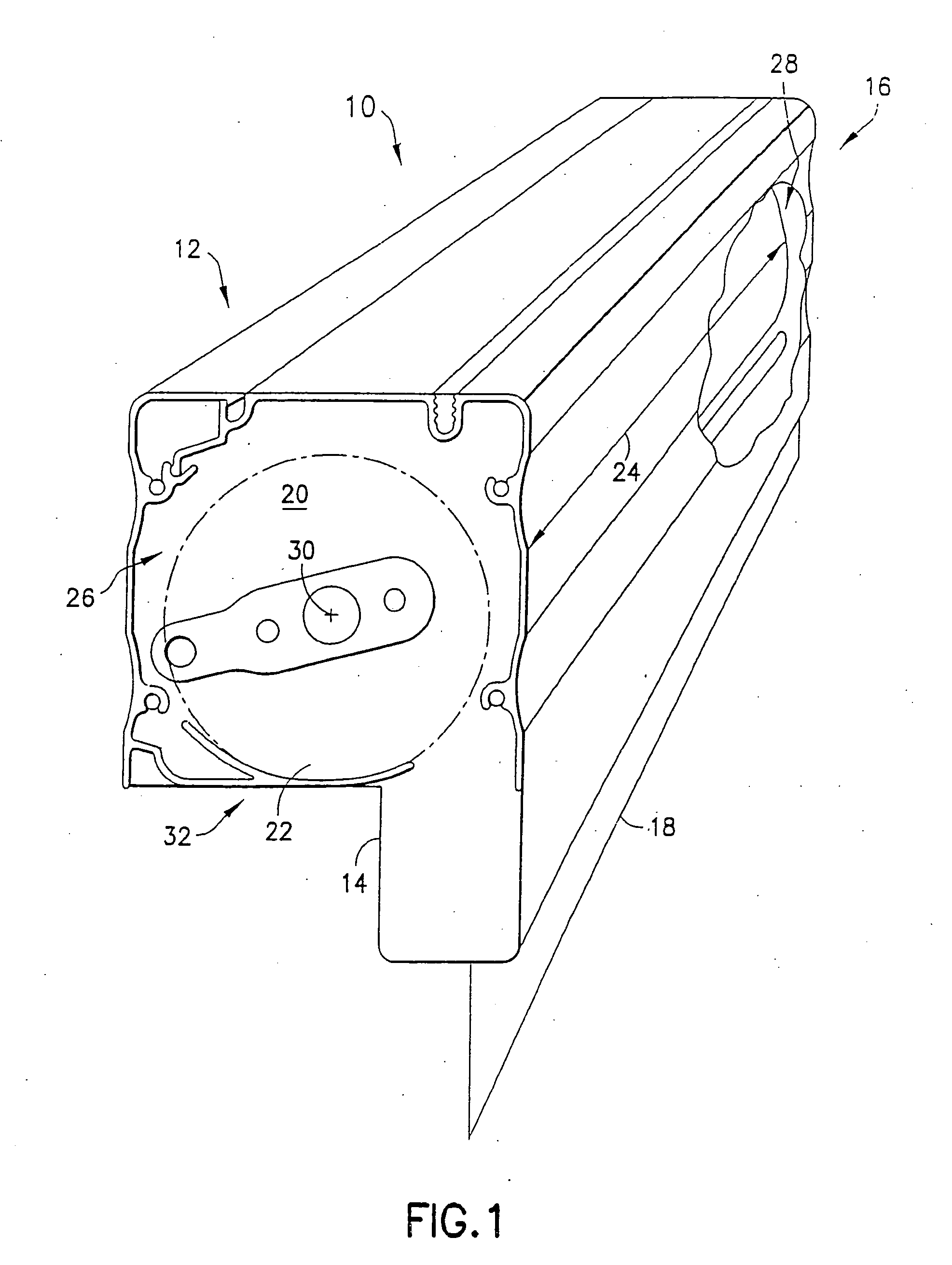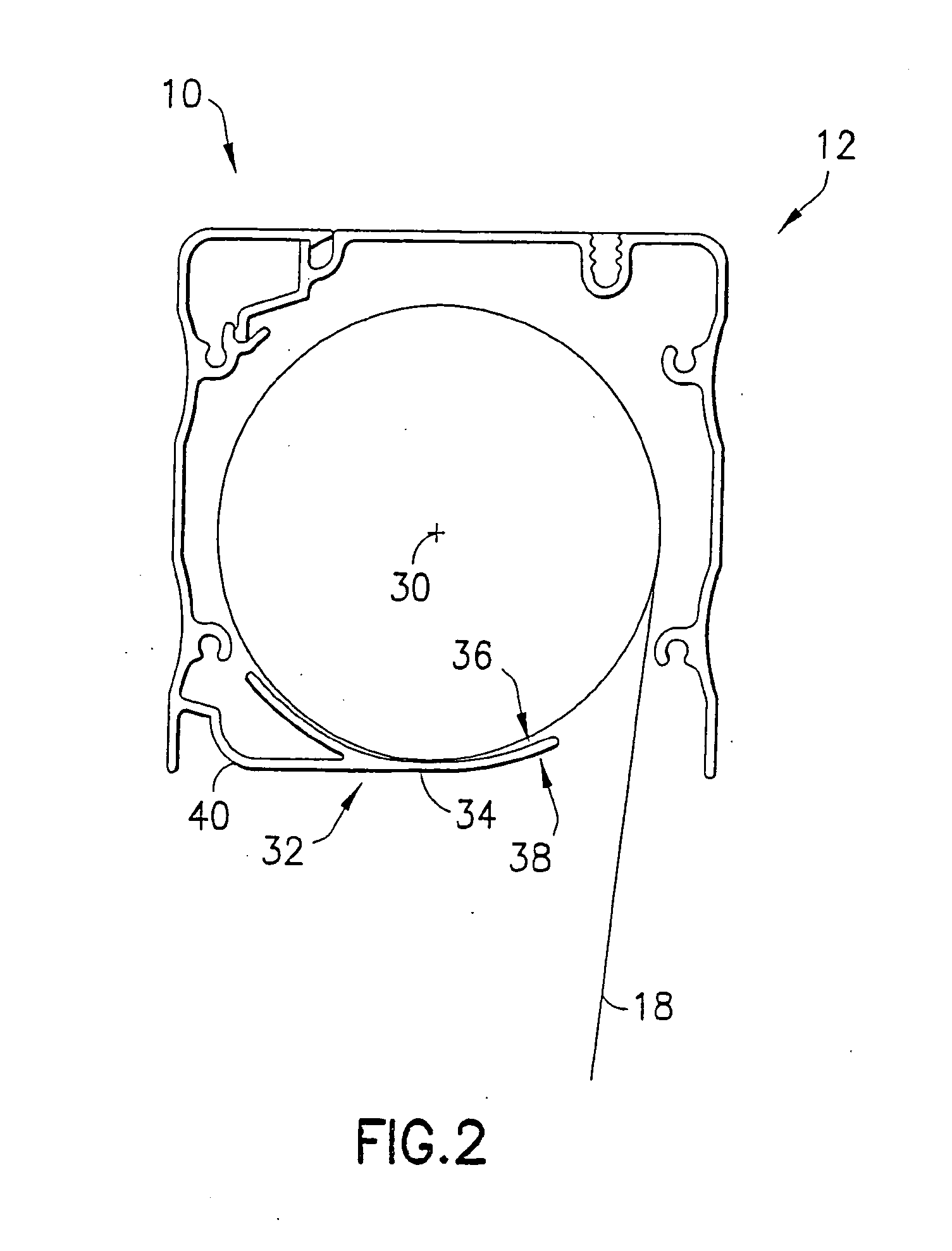Spring biased slide arrangement for anti-bow roller tube
a technology of anti-bow and roller tubes, which is applied in the direction of door/window protective devices, instruments, shutters/movable grilles, etc., can solve the problems of downward “sagging” deflection in the central portion of the roller tube with respect to the supported end, sagging deflection in the conventionally supported roller tube can also have a detrimental effect on operation, etc., to achieve the effect of reducing the force of the roller tub
- Summary
- Abstract
- Description
- Claims
- Application Information
AI Technical Summary
Benefits of technology
Problems solved by technology
Method used
Image
Examples
Embodiment Construction
[0052]A roller tube support assembly in accordance with the present invention can include a first mount and a second mount opposite each other. The assembly can be configured to rotatably support a roller tube between the first mount and the second mount. The roller tube includes a body defining a length between a first end and a second end. The roller tube can be configured to support a sheet material wound around the roller tube body along the length of the body between the first and second ends of the body. Alternatively, the roller tube can be configured to support multiple widths of sheet material wound around the roller tube body to provide a single roller tube system for adjacent windows separated by mullions. A support cradle can be coupled to the assembly between the first and second mounts. The support cradle can be configured to support the roller tube. A biasing member is arranged to reduce a force of the roller tube in a direction towards the support cradle. By reducing...
PUM
 Login to View More
Login to View More Abstract
Description
Claims
Application Information
 Login to View More
Login to View More - Generate Ideas
- Intellectual Property
- Life Sciences
- Materials
- Tech Scout
- Unparalleled Data Quality
- Higher Quality Content
- 60% Fewer Hallucinations
Browse by: Latest US Patents, China's latest patents, Technical Efficacy Thesaurus, Application Domain, Technology Topic, Popular Technical Reports.
© 2025 PatSnap. All rights reserved.Legal|Privacy policy|Modern Slavery Act Transparency Statement|Sitemap|About US| Contact US: help@patsnap.com



